It’s been a busy year for BMW. After picking up a trio of trophies at the 2023 Fleet News Awards, back in March, the Munich car maker has appointed a new fleet boss in the UK, expanded its line-up of electric cars and showcased what its next-generation models will look like.
Matt Collins stepped into the general manager of corporate sales role in June, replacing Steve Roberts who’d held the position for just over a year. Roberts moved back to Mini, as head of sales, among several management changes within BMW’s UK sales division.
 Having joined BMW in 2006, Collins has worked in various capacities for the manufacturer, particularly in strategy and product marketing.
Having joined BMW in 2006, Collins has worked in various capacities for the manufacturer, particularly in strategy and product marketing.
He led BMW sales and marketing for western USA from 2014, before returning to the UK last year to support several strategic projects designed to shape the future of the business.
Sustainability is at the centre of Colins’ strategy as he aims to match BMW’s growing range of electric cars with the fleet industry’s desire for tax efficient and environmentally friendly models.
While BMW continues to develop models with both electric and internal combustion powertrains, the brand has recently tact in adopting an electric-first strategy with new model launches.
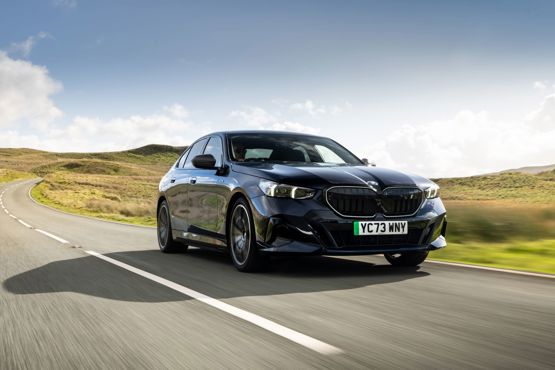
The most important new BMW to launch in 2023 was the i5, an electric version of its ubiquitous 5 Series. Bringing the electric 5 to market before petrol and plug-in hybrid versions cements the importance of the zero-emission powertrain to the brand, according to the Collins.
With the iX1, iX3 and iX SUVs, i4 four-door coupe and i7 luxury car accommodating key sectors in the corporate sales market, the i5 was the missing piece in BMW’s jigsaw and is expected to become a leader in the executive saloon space.
Read our first drive review of the new BMW i5 here.
At the time of writing, BMW Group has sold the second-largest number of EVs in the UK this year, sitting only behind Tesla.
Like most brands, the bulk of its EV sales (70%) come from the true fleet channel, with the i4 taking the top spot as its most popular model among corporate buyers.
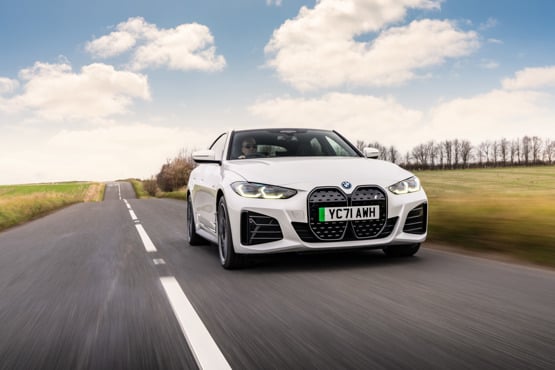
Collins told us that 75% of the brand’s current order bank, in the corporate channels, is for pure electric models, while plug-in hybrids make up the majority of the rest.
In future, BMW will continue to launch electric versions of its cars first. It will kick-off 2024 with the introduction of the iX2, a fully electric version of the second-generation X2.
BMW’s focus on sustainability extends beyond just powertrains, though. Its latest initiative, Vehicle Footprint, is a cradle-to-grave CO2 emissions report that will be produced for each of its new electric vehicles (EVs).
Collins explains: “There's much more of a sustainability focus, obviously, for the company in general, but especially for fleets. What we can now do is show exactly what the CO2 footprint is all the way from literally digging the raw materials out of the ground, through supply chain, production, the end user driving the car, and then at end of life when it gets recycled. So, for the first time, we can be really transparent and say, this is what the CO2 impact is for your car. Not just for the three years you drive it but it’s impact on the world.
“From a fleet perspective, I can see that there's a huge potential. We could get to the point where that CO2 impact is one of the determining factors maybe in terms of banding. It's things that the RV setters and data providers will be more interested in, so I'm proud that we managed to start delivering that.”
Expanded line-up makes BMW EVs more attainable
Strong fleet demand for BMW’s electric vehicles has led to the introduction of an expanded line-up of its existing models. Both the iX1 and i4 have gained new, cheaper derivatives, making them more attainable to company car drivers.
Collins admits that the higher list prices of electric cars can make getting them into the right bandings a challenge.
“We're very conscious of banding, that's always something we're thinking about,” he explains.
“What we've seen is the majority of bandings in most of our accounts have been increased to account for the higher prices of electric cars in general.”
In some cases, customers are opting for lower trim grades, such as Sport instead of M Sport, in order to ensure that models appear on choice lists.
Collins adds: “As great as the product is, if you're not eligible for it it's not as relevant. That's why I'm so excited that we've got this huge range of products, because that really helps with that banding conversation.
The iX1 eDrive20 uses a single motor powertrain, undercutting the twin-motor xDrive30 by £8,000 and offering slightly more range.
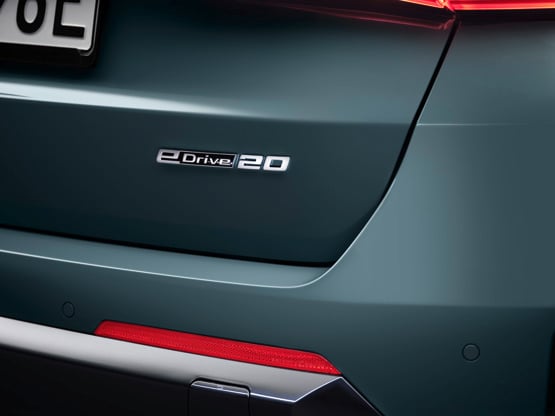
BMW’s best-selling electric car, the i4, was also gifted a new variant. The eDrive35 launched with a similar £8,000 price cut, when compared to the eDrive40. It has slightly less power and a smaller battery, but still offers a range of around 300 miles.
In 2024, Collins expects these two new derivatives will be particularly popular among fleet customers, along with the new iX2.
There’s also a suite of new models to launch from Mini, including and Countryman models, both with electric powertrains.
A Neue Klasse for the next generation
While the iX2 and i5 will hit the road in early 2024, BMW is already looking further into the future and has showcased what its next -generation models beyond 2025 could look like.
The Neue Klasse models will move away from internal combustion engines completely, using new bespoke electric platforms.
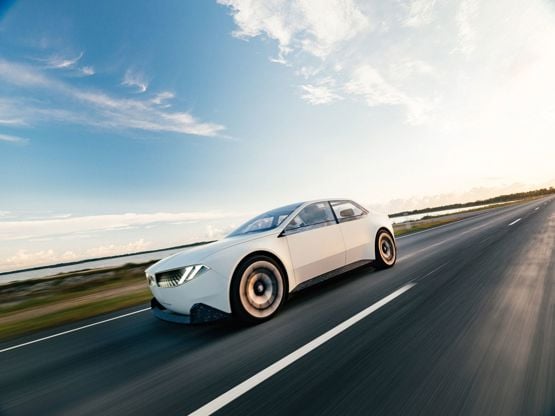
An all new 3 Series, based on the first concept to be revealed, will be among the first new models to break cover and go on sale as we reach the middle of the decade.
The car is said to offer 30% more range, 30% faster charging and 25% more efficiency than BMW’s existing electric models.

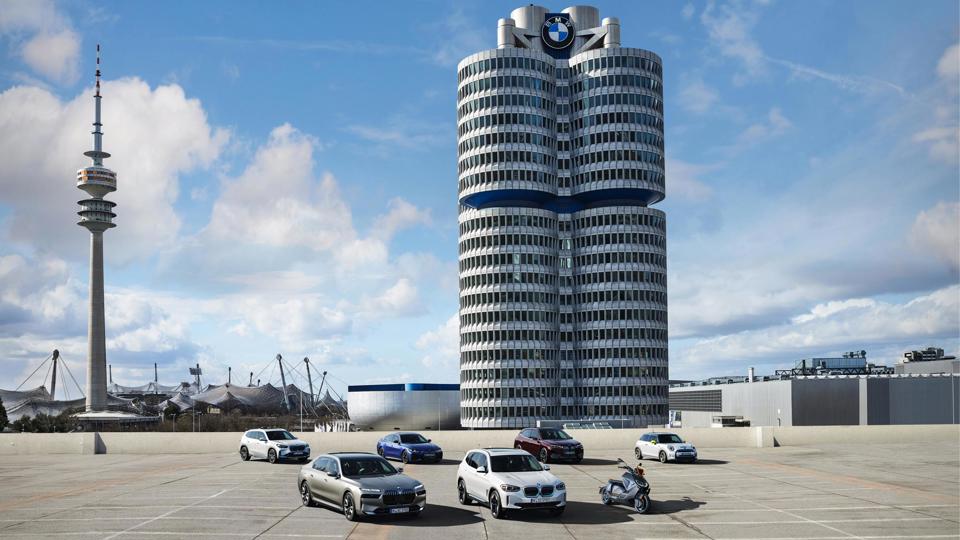





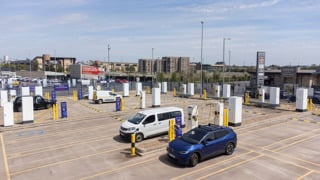













Login to comment
Comments
No comments have been made yet.